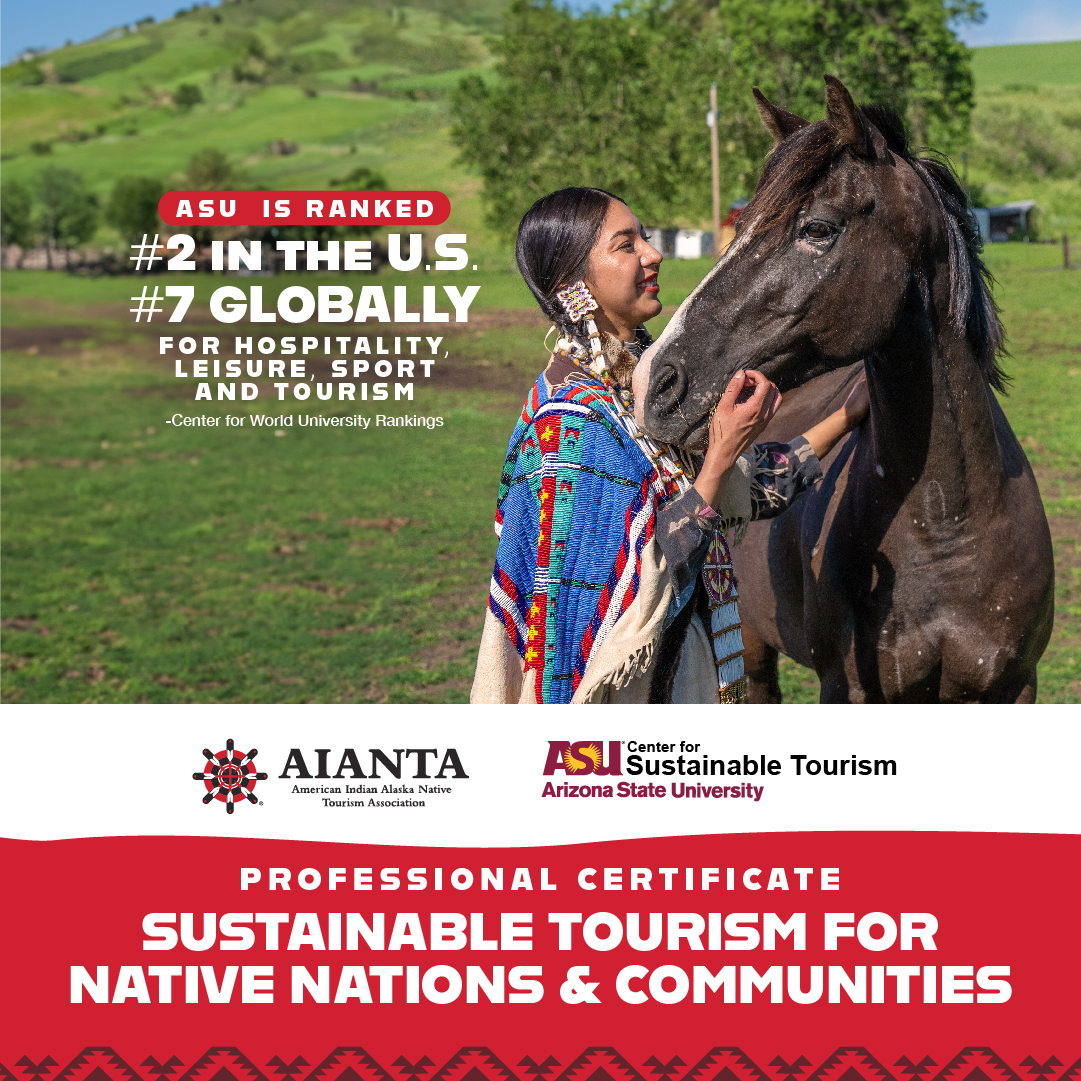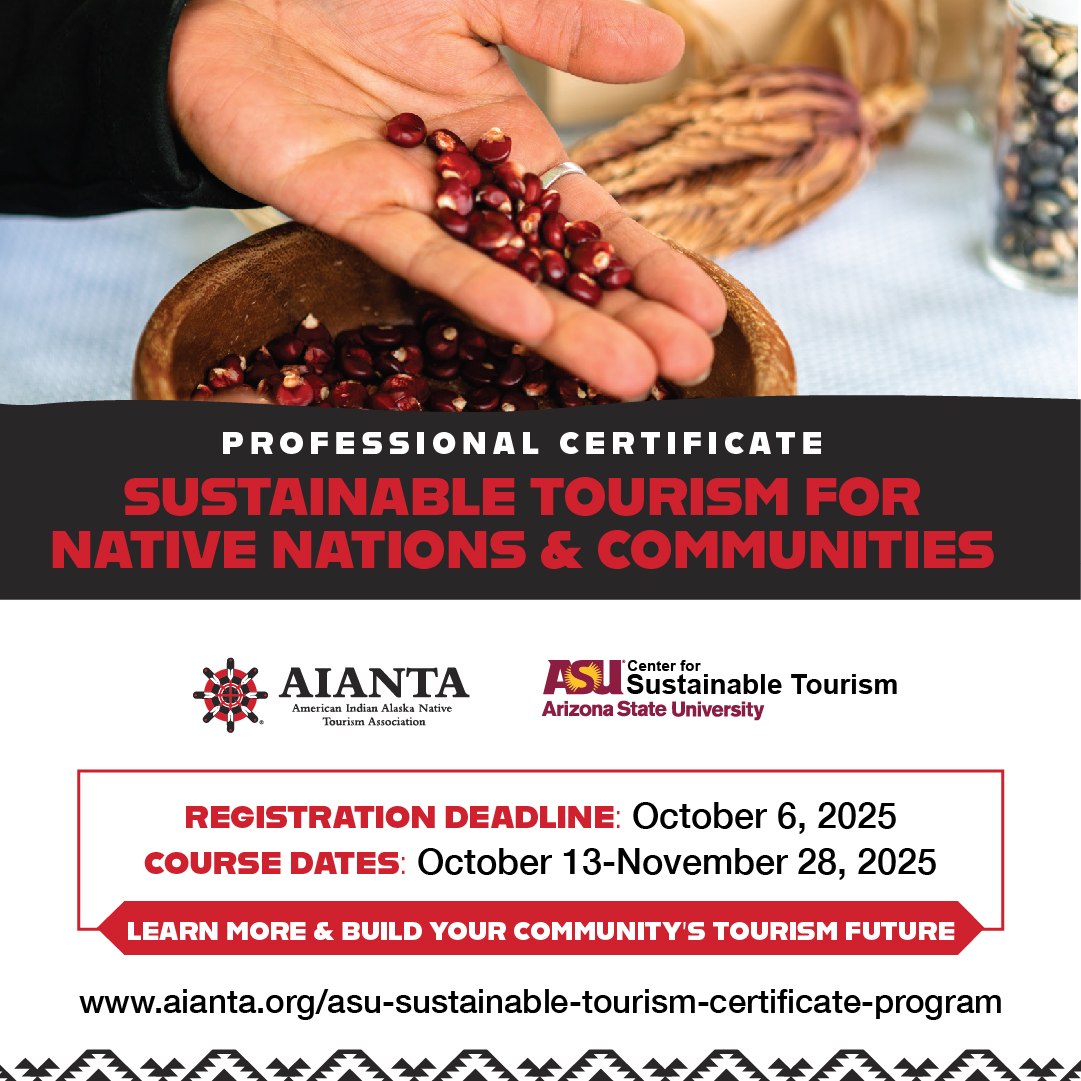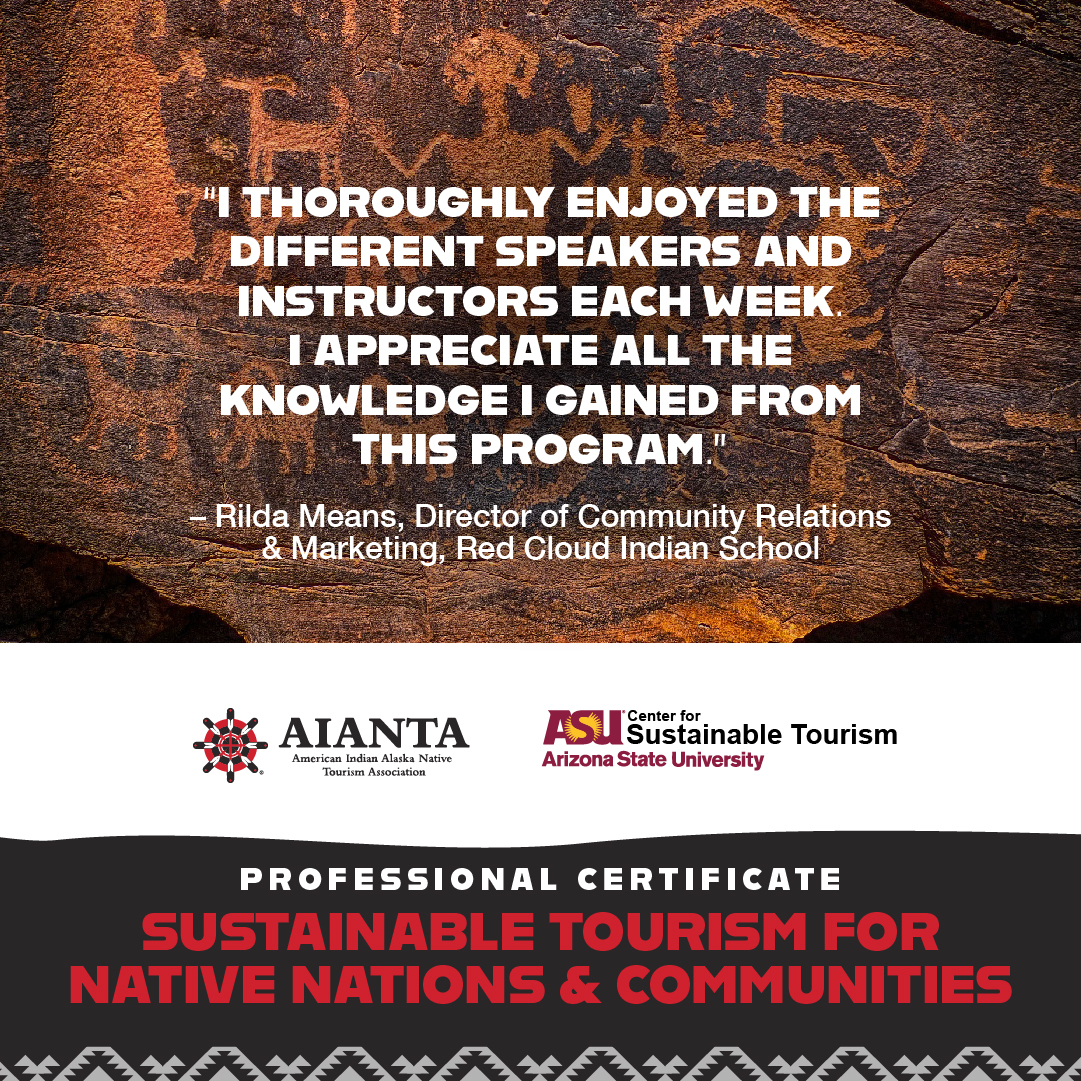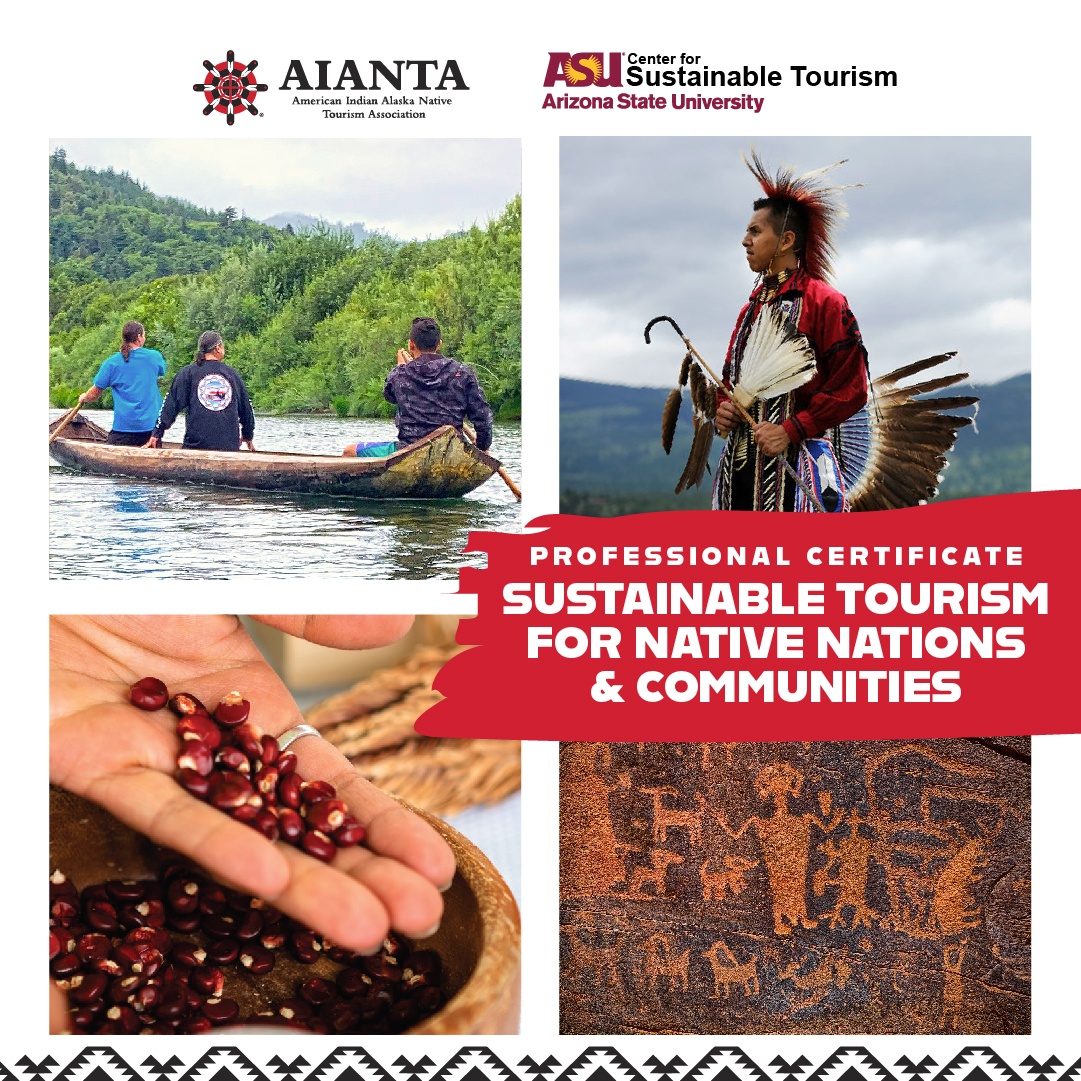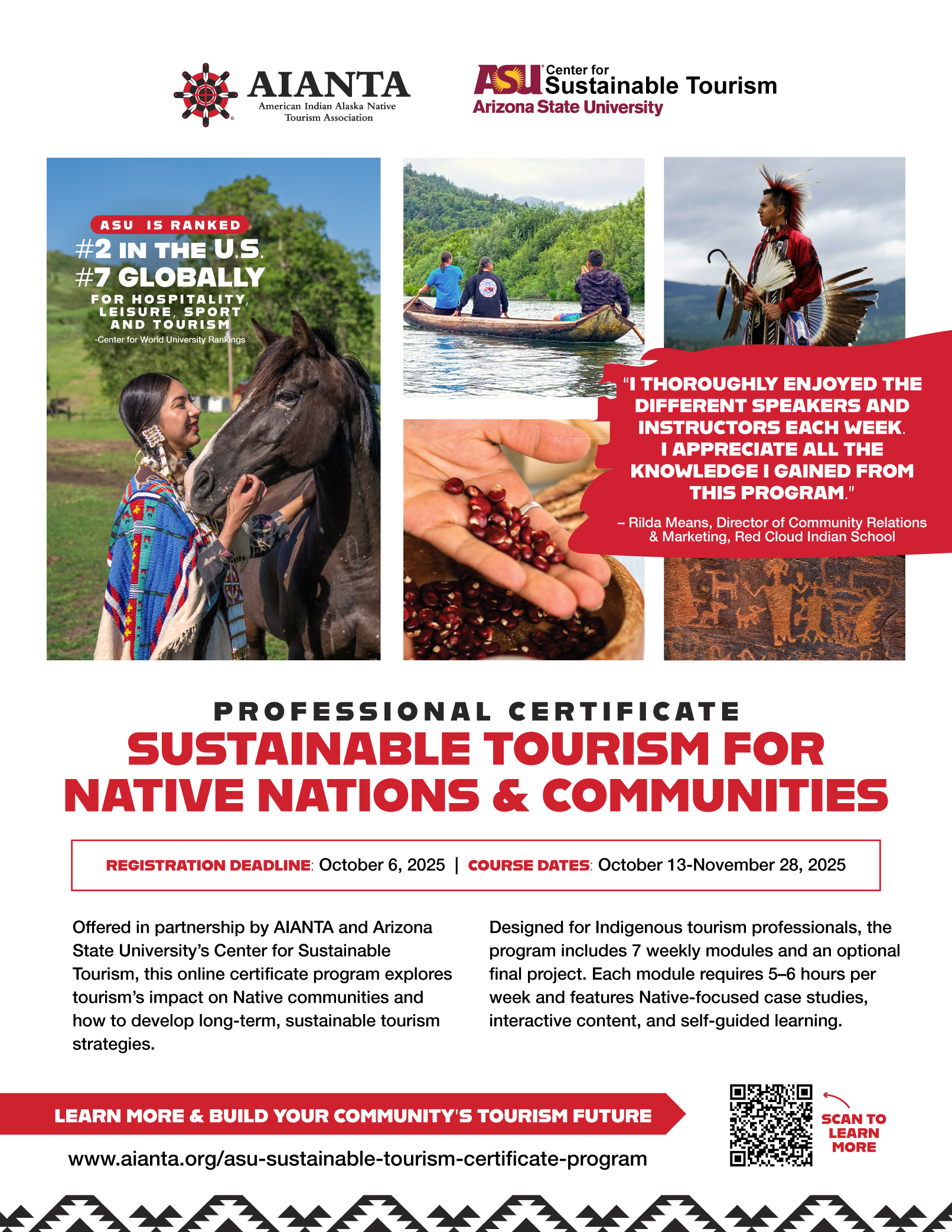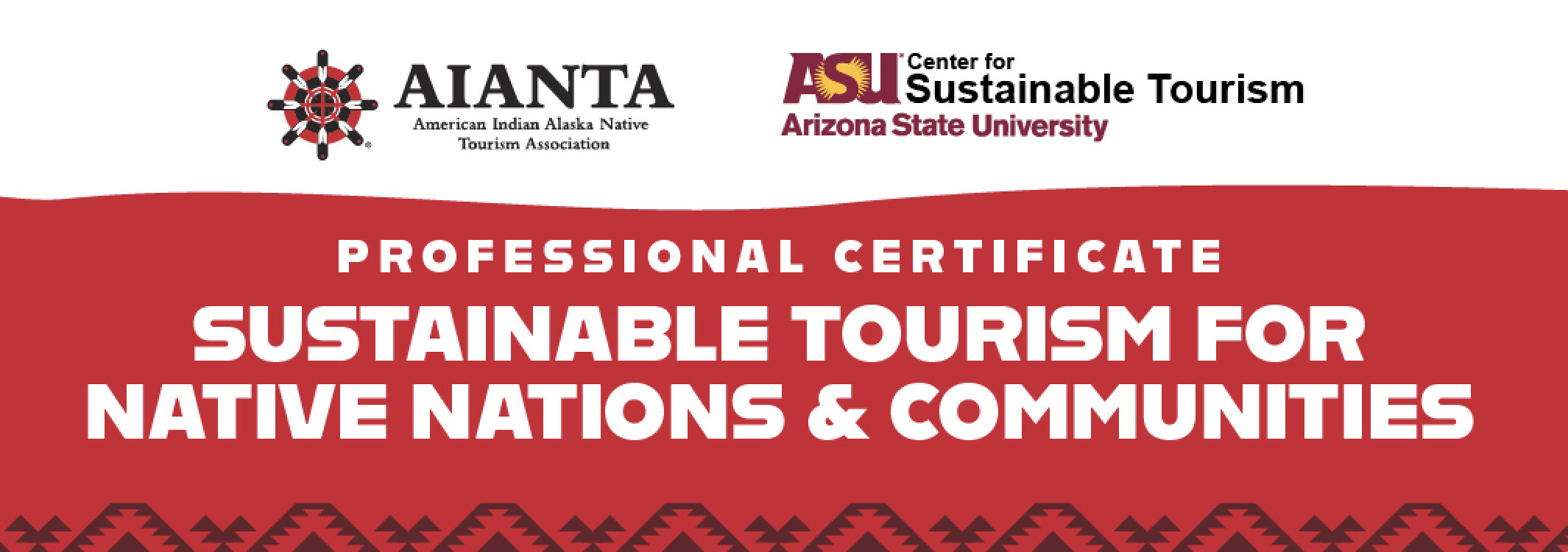
Sustainable Tourism for Native Nations and Communities Certificate
Build your long-term sustainable tourism development plan.
The purpose of the online Sustainable Tourism for Native Nations and Communities Certificate (STC) is to provide participants with an overview of sustainable tourism and how it can be incorporated into their community’s tourism planning and development. The certificate will provide sustainable tourism curriculum with a specific emphasis on American Indian, Alaska Native and Native Hawaiian tourism efforts offered as a professional development.
The certificate is offered through the Arizona State University Center for Sustainable Tourism housed in the School of Community Resources and Development. The Center for Sustainable Tourism and its affiliated partners, faculty, and students seek to examine the role and contribution of tourism in the social, cultural, environmental, and economic well-being of communities. The Center’s research, education, and development activities focus on long-term, system-wide, sustainable strategies, and co-created solutions for community and tourism development. To learn more about the Center, click here.
Requirements
The STC program will consist of seven modules plus an introductory module and a final project offered over a seven and half-week period, one module per week. Each module will require five to six hours of effort each week for seven weeks, about two of which will be general content in class, will include a case study or other Tribal specific content offered in a variety of formats, and will include self-guided reading and assignments. The course will be offered as pass/fail. Students have the option of doing a final project.
Upon successful completion of the program, participants will receive a certificate of completion.
CERTIFICATE PROGRAM – FALL 2025
Course Start Date: October 13, 2025
End of Course: November 28, 2025
Registration Deadline: October 6, 2025
CERTIFICATE FEES
AIANTA Member: $1,600
Non-Member $1,650
Note: 10% discount for three or more participants from the same organization.
REGISTRATION
Deadline to register/final payment is October 6, 2025; We are unable to process refunds once payment has been processed, no exceptions.
The courses are designed to be progressive. Modules include:
Introduction to the Program
An overview of the course, its requirements, and your faculty.
